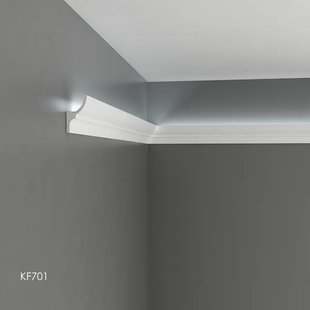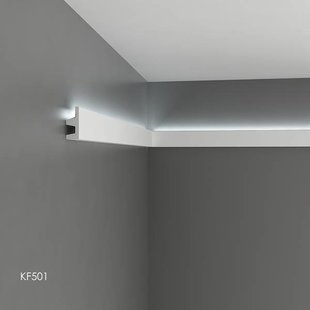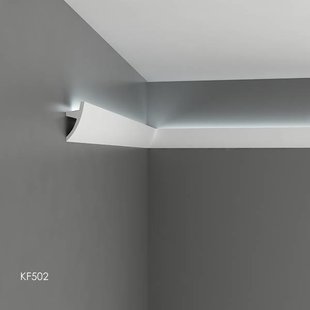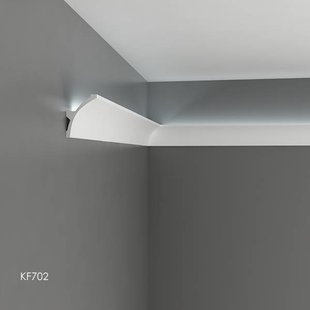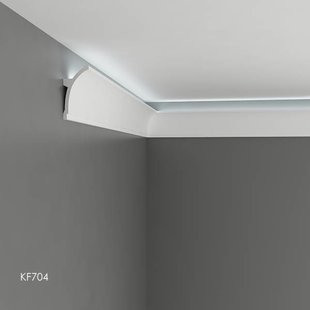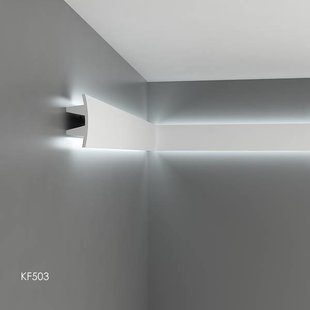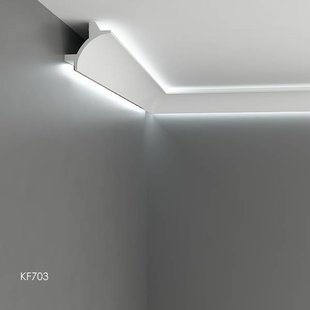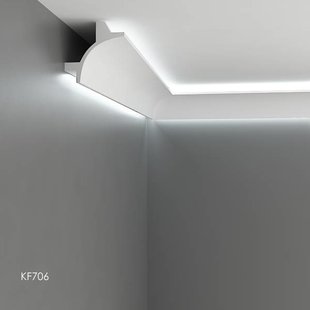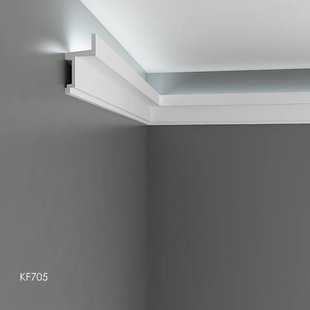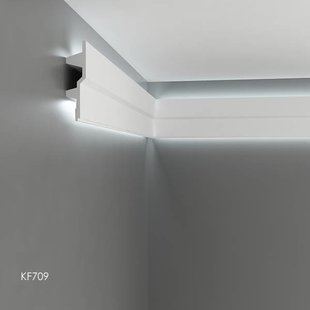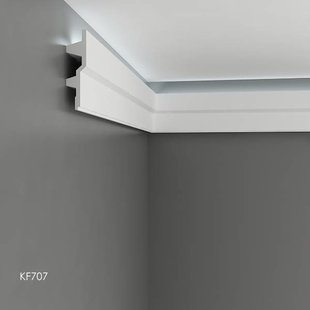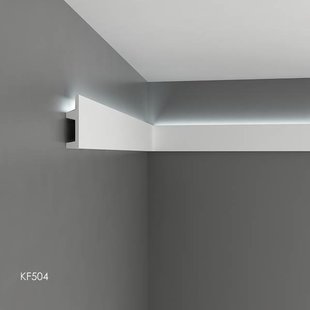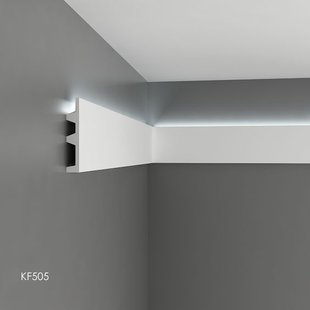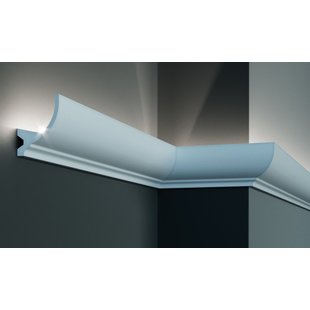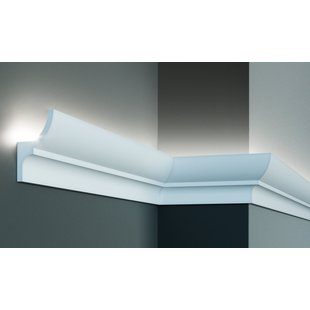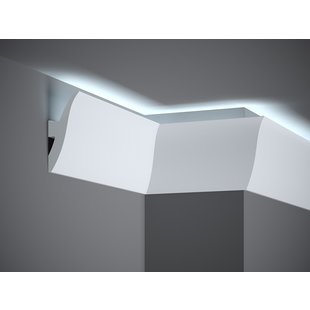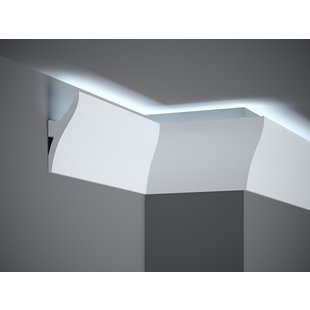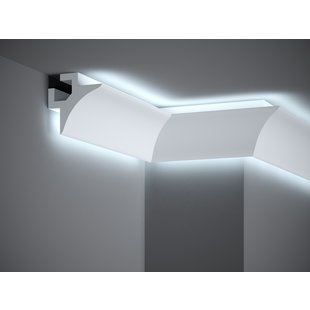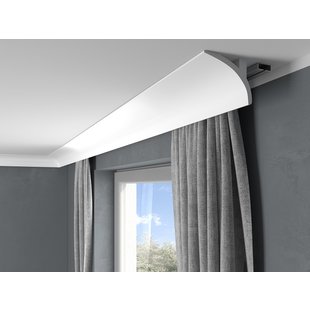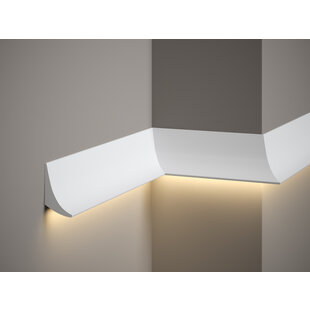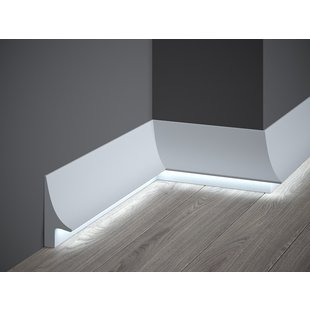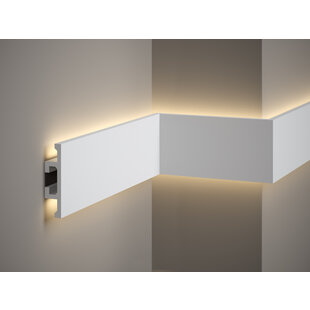
Lighting moulding
Cornices for indirect lighting are specially developed and designed for the installation of LED strips. This range is characterized by innovative and creative designs.
Read moreLighting Moulding QL009 (120 x 47 mm), length 2 m
Lighting Moulding QL010 (120 x 42 mm), length 2 m
Lighting Moulding QL002 (85 x 85 mm), length 2 m
Lighting Moulding QL011 (91 x 13 0mm), length 2 m
Panel moulding QL006 LED (70 x 42 mm), length 2 m
Skirting LED QL007 (93 x 42 mm), length 2 m
Lighting Moulding QL017 (100 x 25 mm), length 2 m
Skirting LED QL019 (80 x 25 mm), length 2 m
Skirting QL021 LED (20 x 25 mm), length 2 m
Are you looking for a unique and stylish way to illuminate your interior? Then indirect lighting made of polyurethane and HDPS might be the perfect solution for you. With this lighting, you can create an atmospheric and warm ambiance in any room. But what exactly is indirect lighting and why should you choose polyurethane and HDPS? We are happy to explain it to you.
What is indirect lighting?
With indirect lighting, the light is not shone directly onto a surface, but is reflected through walls, ceilings or other objects. This creates a diffuse and cozy light, rather than a direct and bright light source. Indirect lighting is therefore perfect for creating a calm and relaxing atmosphere in the home.
Why choose polyurethane and HDPS?
Polyurethane and HDPS are both materials that are widely used for indirect lighting. This is because they are lightweight, durable and inexpensive. In addition, they are easy to work with and can be molded into any shape. In addition, these materials are also fire retardant and insulating, providing additional safety and energy savings.
Frequently Asked Questions
What is the difference between polyurethane and HDPS?
Polyurethane is a plastic made by mixing several chemical components together. HDPS, on the other hand, is a form of polystyrene obtained from petroleum. Polyurethane is more flexible and stronger than HDPS, while HDPS is more resistant to moisture and temperature fluctuations.
Is indirect lighting suitable for all rooms?
Yes, indirect lighting can basically be used in any room. It is especially popular in living rooms, bedrooms and kitchens, but it is also commonly used in offices and restaurants. However, it is important to pay attention to the intensity of the light and the location of the lighting for optimal results.





